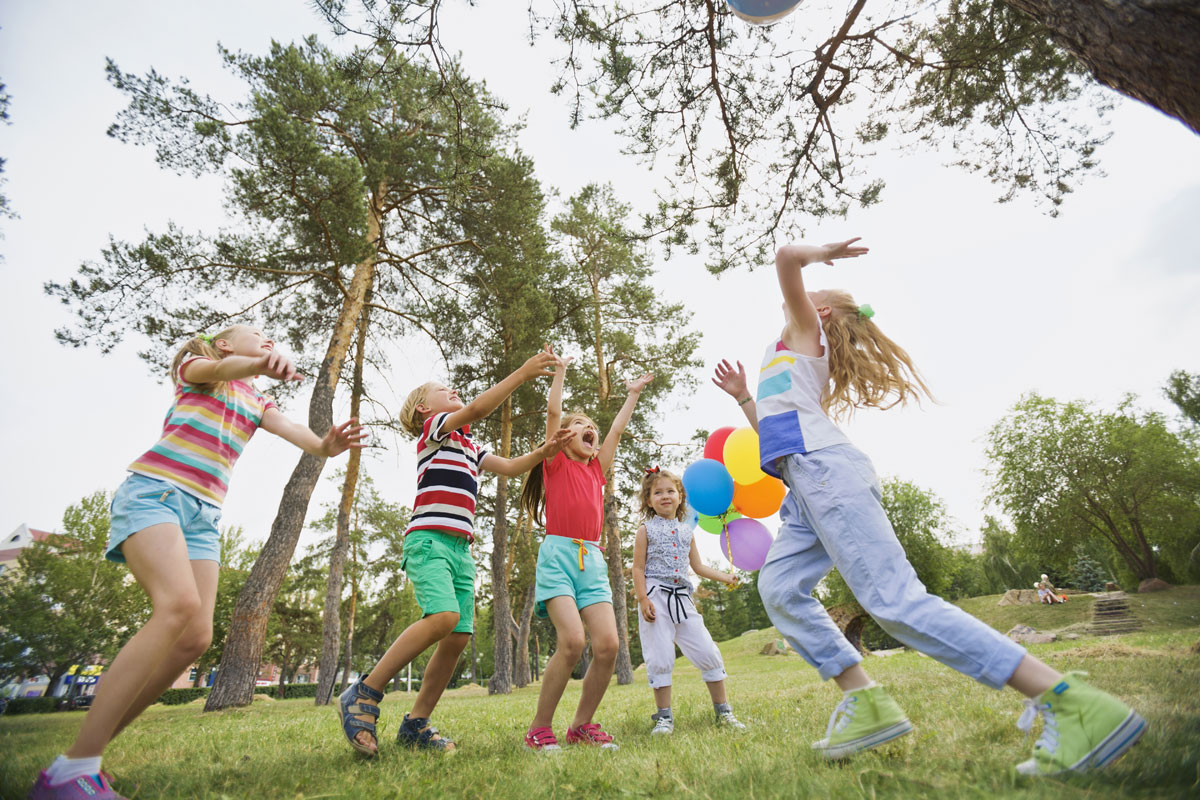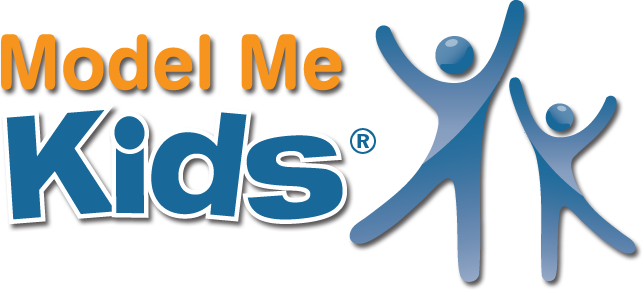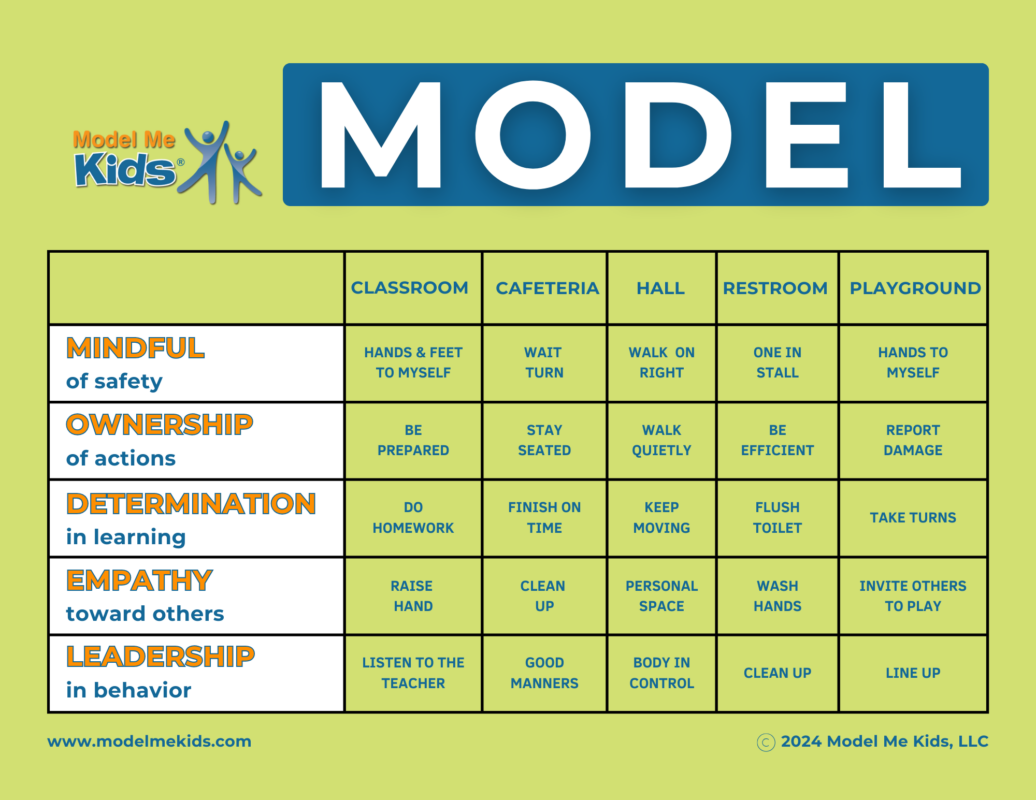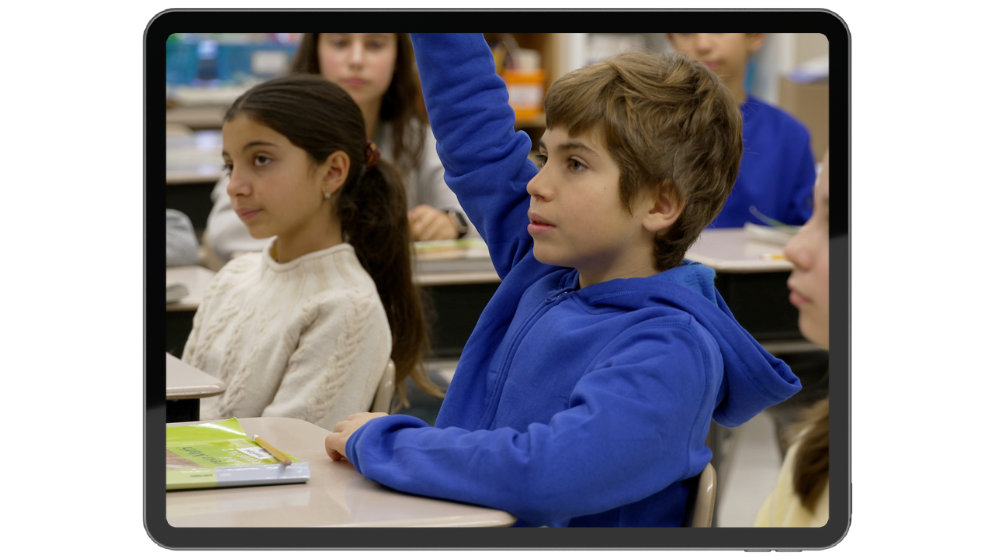
M-O-D-E-L
PBIS Curriculum
The M.O.D.E.L. PBIS curriculum rubric outlines the skills targeted in each of the videos. This easy-to-implement video modeling curriculum fosters positive behaviors, supports academic success, and enhances student well-being. Watch the videos, learn the songs, practice the skills. Accessible to Tier 1, 2, and 3 students. Videos for behavior in the: Classroom, Cafeteria, Hall, Restroom, and Playground.
M indful of Safety
O wnership of Actions
D etermination in Learning
E mpathy Toward Others
L eadership in Behavior
Currently released: Classroom, Cafeteria, Hall, Restroom
Next: Playground
PBIS Curriculum
The PBIS curriculum is designed for all students, including those with disabilities and/or behavioral challenges. Its tiered support system offers different levels of intervention, making it versatile and adaptable. PBIS creates an inclusive, equitable learning environment that benefits:
- Elementary, Middle, and High School Students: PBIS is tailored to fit different developmental stages and academic settings.
- Special Education Students: PBIS provides additional support for students with unique behavioral needs.





